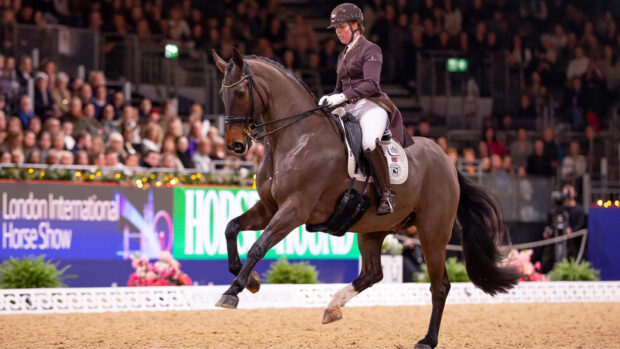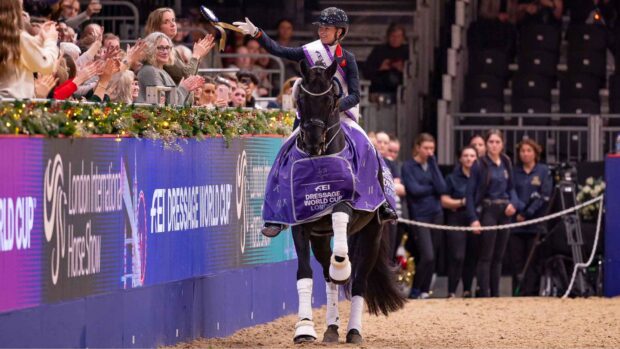Consent around children’s photography at shows has come under discussion – with calls for competitors, photographers and venues to be aware of what is needed.
Clare Harding hopes to raise awareness after an issue at an unaffiliated show where her young daughter was competing. Mrs Harding, a photographer, was aware of images being taken and had been told by the venue these would be available to view in a secure online gallery, but she did not want photos of her daughter on social media.
When Mrs Harding later saw images of her daughter on social media, she asked the venue to remove them but the venue said that as it had signs up on the day stating that photographs were being taken and would be posted online, they could “use the pictures how they like”. Mrs Harding said after she asked the venue multiple times, the images were removed.
“I think it would be useful for online entry systems to have an opt-in question, and for anyone who doesn’t opt in to wear a small ribbon somewhere to identify them, so it’s easy to spot but not distracting. It’s not so much for adults, but for children whose parents for whatever reason do not consent to their photos being taken.
“A lot of the time when a parent says, ‘I don’t put photos of my child on the internet’ people don’t understand because it’s the norm to put everything on the internet. If they want to do that with their children, that’s fine and their call, but there seems to be entitlement from some venues and photographers who think they take the pictures and can do what they want with them.”
There can be different reasons why parents or guardians do not want children’s images online. There are also GDPR implications to consider; photographs identifying an individual are likely to be considered as personal information, and organisations have to be clear about their purpose of processing photos and identify a lawful basis for this.
Michelle North, service head of the NSPCC’s child protection in sport unit, told H&H it is “essential sports clubs have strong policies around photography to help keep children and young people safe”.
“This includes seeking consent from the child as well parents or carers and making them aware of how and where photographs will be used. It is the child and parents’ decision where their image appears and for some individuals, it could be detrimental for their safety to have their image shared without their knowledge,” she said.
“At larger events it’s essential any photographers are also made aware of children who do not have consent for any close-up images.”
H&H asked the NSPCC whether a sign stating that photos will be taken and shared online acts as consent. A spokesman said this is “a start but we owe children a stronger duty of care”, so there needs to be a process at that event to opt out – and to recognise children whose images cannot be shared, for example a wristband.
Equestrian governing bodies that have policies on photography include the Pony Club; CEO Marcus Capel told H&H “safeguarding of our members is key”.
“The appropriate use of photos and images is embedded in our safeguarding training and guidance,” he said, adding that if requested to remove an image, the Pony Club would do so.
“Our members or membership administrators sign the membership form to give permission for use of their images. Our volunteers and officials are aware of members who, for whatever reason, do not wish their photos to be taken or used.”
The Pony Club asks that all its official photographers are registered with the Information Commissioner’s Office, and that parents do not share images of other children on social media, without their parents’ consent.
Event photographer Hannah Cole told H&H consent around photography can be a “grey area” in the equestrian world. She advises competitors and parents to read the venue and/or show’s terms and conditions when entering, and to raise any concerns with the organiser.
“Most photographers would be more than happy to remove a photograph of a child from online when asked,” she said.
“As well as being bound by the organiser or venue’s terms and conditions, I’d always try to approach parents to let them know I am working and where the images are likely to be posted, in case there are any issues around consent.”
You might also be interested in:

‘I had to do something to survive’: positive response as equestrian photographer charges to view pictures

Theft of images a ‘huge problem’ equestrian photographers agree
An equestrian photographer has spoken out about the “huge problem” of copyright theft of images, which he fears has become

Subscribe to Horse & Hound magazine today – and enjoy unlimited website access all year round
Horse & Hound magazine, out every Thursday, is packed with all the latest news and reports, as well as interviews, specials, nostalgia, vet and training advice. Find how you can enjoy the magazine delivered to your door every week, plus options to upgrade your subscription to access our online service that brings you breaking news and reports as well as other benefits.




